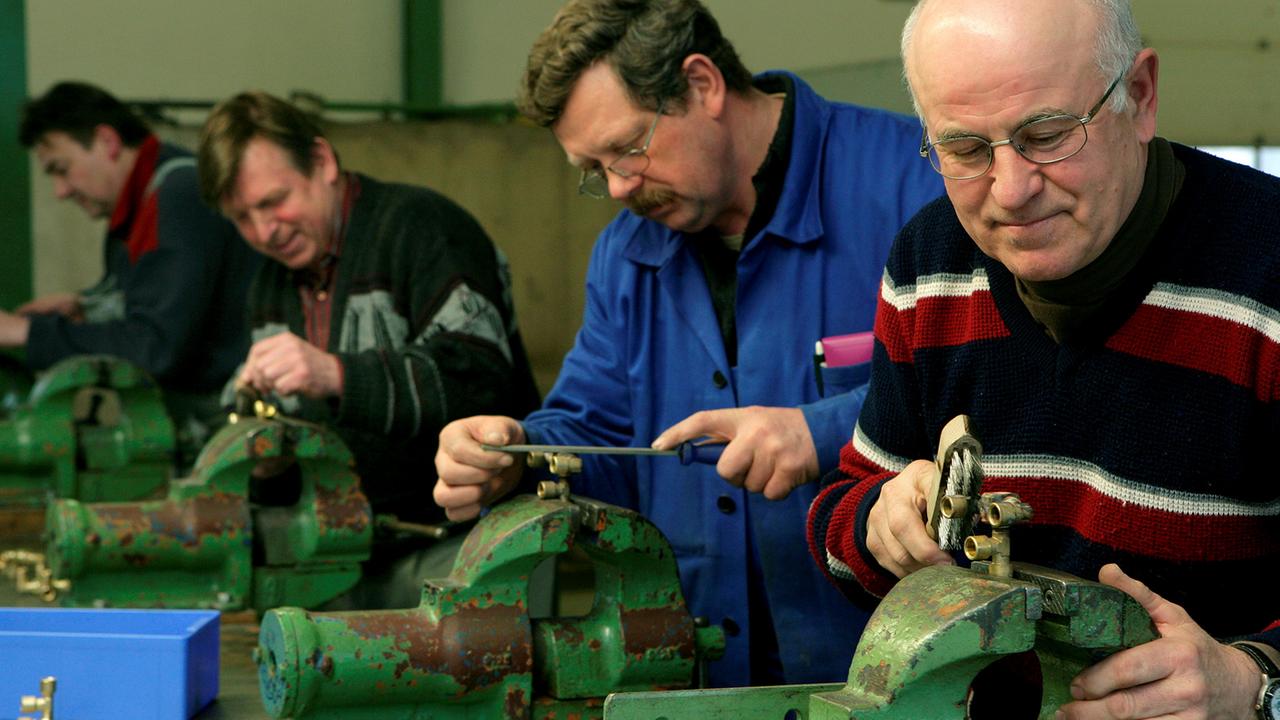Given the shortage of skilled workers, companies want to keep their employees for as long as possible. But many would prefer to retire earlier, according to a TK study. Companies want to counteract this with offers for employees aged 50+.
“I'm going to take matters into my own hands now,” was the decision that Klaus-Peter Mikulla made one evening on the sofa. He was concerned that society – and therefore employees – were getting older, but no one in the company was really reacting to this. Mikulla founded the internal network “New Generation 50+” at Beiersdorf.
Management liked the idea and supported Mikulla. That was eight years ago now. Since then, the group has achieved a lot. There was a kind of speed dating between young and older colleagues, with three minutes of conversation each. The effect: more understanding and respect for one another, networks across generations. Mikulla and her colleagues have launched their own training series for older people: “New Generation 50+ goes digital”. The intranet provides information and exchange on professional development specifically for older employees.
“A third of their working life is still ahead of them”
All of these things increase the appreciation of older employees and thus their well-being and their willingness to work until they reach the normal retirement age and not leave the job market earlier. “Today we work until we're 67. From 50 to 67, that's a long time. I have to offer people at that age career opportunities as if they were young, because a third of their working life is still ahead of them,” says Mikulla.
The Techniker Krankenkasse also sees the problem. It surveyed 1,000 employed people over 50 years of age. Almost a third of them plan to leave their jobs before the statutory retirement age. And this despite the fact that there is already a shortage of skilled workers. And the wave of retirements of the baby boomer generation, with its high birth rate, is looming.
More appreciation required
This is where countermeasures need to be taken, say Techniker Krankenkasse and the Institute for Corporate Health Consulting (IFBG), which was commissioned to carry out the study. “Those who experience more appreciation, self-determination and flexibility in the workplace also work longer,” says Fabian Krapf, Managing Director of the IFBG. The study shows a clear connection between a positive corporate culture and employees' desire to retire later. The number one wish of those surveyed is to be able to adapt working hours more to their own needs.
In the report, the Techniker Krankenkasse also evaluated sick days and related them to years of work. The result: people who have fewer sick days also work longer. It therefore makes sense to invest in employee health promotion, not only to reduce absenteeism, but also to extend working hours until retirement.
Life phase coaching for more satisfaction
Sometimes it starts with very simple things: Do the work shoes fit? Are the storage ramps at the right height? How do employees lift a manhole cover? The Berlin Waterworks has received several awards for its health management. Manager Kristin Kroboth says it's about creating good working conditions, but also offering services on a different level.
With life phase coaching, for example, older employees can get advice on how they want to spend their last years in their careers: do something new, take on management responsibility or ensure a meaningful transfer of knowledge to the younger generation? “We want to achieve a form of appreciation and, with it, employee satisfaction,” says Kroboth.
Win-win situation
Lifelong learning, further development, adopting new perspectives – that is the key for him, says Mikulla. “Don't look at the generation the way you used to look at them,” he appeals. “We need a new perception. That also has an effect on the people who work in the company.” He himself has often taken on new positions in the company, done completely different things than before, and that has helped him progress and kept him fit, he says. In the end, both sides benefit: the employees are happier and the company retains valuable employees.
Mikulla is now 65 years old and will retire in August. He founded the company he plans to continue working for afterward. With two partners, he wants to build a network of consultants across Germany and help companies to exploit the potential of their employees over 50.
“One major milestone is that at some point we will no longer talk about old age.” Mikulla himself wants to work as long as he enjoys it and is healthy. “I'm not going to sit at home on the sofa now, I'll just get old.”





